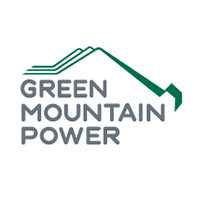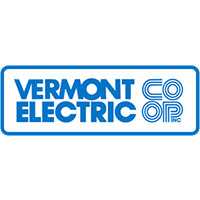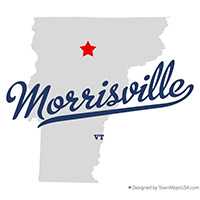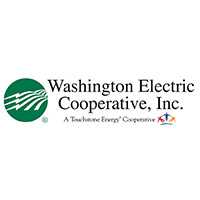Solar power in Vermont
Vermont’s high utility power costs make solar a great investment for homeowners.
Vermont offers various incentives for going solar, including the renewable energy systems sales tax exemption, a statewide net metering policy, and a feed-in tariff program. These, coupled with the federal tax credit, make going solar a viable option for the residents of Vermont.
Compare solar quotes from the top solar companies in Vermont
Vermont solar power facts
$2.62 watt
Average cost: 5kW solar power system
?4 Years 6 Months
Average payback time
$88,013
Average lifetime savings
?6¢ kWh
Levelized cost of solar energy
37¢ kWh
If you don't get solar
?8,653 kWh
Annual power production
Cash flow graph based on cash purchase of a 7.52kW system
This 7.52kW system would offset 100% of your energy usage if your typical monthly bill in Vermont is $150, however, your situation may vary so try our solar calculator to get a result tailored to you.
1
Solar companies in Vermont that provide pricing through the SolarEstimate marketplace.
How much can solar panels save you in Vermont
Average total cost of solar panel installation in Vermont
| System Size | Cash purchase After 26% solar tax credit |
Financed purchase After 26% solar tax credit |
|---|---|---|
| 3kw | $6,016 | $6,497 |
| 4kw | $7,903 | $8,535 |
| 5kw | $9,694 | $10,470 |
| 6kw | $11,455 | $12,372 |
| 7kw | $13,105 | $14,154 |
| 8kw | $14,741 | $15,920 |
| 9kw | $16,250 | $17,550 |
| 10kw | $17,760 | $19,181 |
How much do solar panels cost in Vermont?
$2.62 per watt
Cash purchased solar system
Before 26% solar tax credit
$2.87 per watt
Financed solar system
Before 26% solar tax credit
$16.7¢ /kWh
Lease/PPA
Ave 15 year term, 2.5% price escalator
What are the pros and cons of installing solar panels in Vermont?
The advantage of installing solar panels in Vermont is that there are both state-based incentives and the federal tax credit. Together, they set up a foundation for great savings when Vermont homeowners install solar. The Green Mountain state also has a state-mandated net metering policy, which further helps to increase a homeowner’s savings. Because electricity rates are high in the state, net metering provides significant savings on utility bills.
SolarPowerRocks provides a great breakdown of solar incentives and policy for each state within the US.
The disadvantage of installing solar panels for your home in Vermont is that the state receives less sunshine than other areas of the country, like Arizona. This means that a system will not produce as much energy here as it could in sunnier states.
However, the net metering policy and federal tax credit more than make up for what the state lacks in sunshine. With all the potential savings, the best time to go solar in Vermont is now!
Best solar companies in Vermont
Compare solar quotes from the top solar companies in Vermont
Best brands of solar panels
To find the best brands of solar panels you can use America's most trusted solar panel comparison and reviews website, SolarReviews.
However, reviews of solar panels can be a bit meaningless because most consumer owners have not had any issues and so while solar company reviews are very important when choosing solar installers they are of less use when choosing solar panels.
For more information to help you make an informed decision about this topic, I would recommend this article about buying solar panels.
How much electricity will solar panels produce in Vermont
Solar panels produce different amounts of energy in different locations.
Around the Burlington area solar panels installed on a south-facing 34-degree pitch roof will typically produce:
1,080kWh
per year per 1kW of peak DC
(direct current) capacity
For more information about how your location, roof direction, and roof tilt affects solar power production use the solar panels calculator and enter your zip code.
I want to buy a solar panel kit and install it myself
What rebates, solar tax credits and other solar incentives are available in Vermont?
Renewable energy standard
In 2015, Vermont improved their renewable energy goals by mandating utilities operating in the state source 75% of their energy from renewable sources by 2032. Of that, 10% must come from distributed generation sources, like residential solar systems.
In order to meet the renewable energy standards, utilities can obtain renewable energy credits (RECs) from residential homeowners. RECs represent the environmental attributes of generating 1 megawatt hour (MWh) of energy from renewable sources.
Standard Offer Program
In May 2009, the state enacted legislation requiring all Vermont-based electric providers to purchase electricity generated by renewable energy facilities through the Sustainably Priced Energy Enterprise Development Program. In this program, homeowners enter into a contract that determines a fixed rate in which they will be paid per kilowatt hour (kWh) of energy their solar system produces.
In 2019, the rate for energy produced with solar was $0.13 per kWh for 25 years. This means, if you install a solar energy system on your property and you apply to the Standard Offer Program, you receive $0.13 per kWh of energy your system produces for 25 years. In return, the utility receives any RECs your solar system produces.
The rates for 2020 have not yet been released.
Net metering in Vermont
Solar, by its nature, generates the most power during the middle of the day when most people are at work or school and little power is being used in the home. The net metering policy in Vermont mandates that for every surplus kWh generated by solar (like the excess energy your system creates during the day) utilities must provide you with a credit that will be applied to future bills to offset costs. However, if there are excess kWh credits at the end of the annual billing cycle, they are surrendered to the utility with no compensation.
Vermont has a unique program called “group net metering”. Through this program, a group of homeowners can decide to pay for a large solar installation on the land of one person’s property. The credits produced by the system can then be shared among the members of the group. This prevents surplus credits being left at the end of the annual billing cycle.
Tax exemptions
Vermont homeowners save big on their property taxes when they install residential solar panels. Installing a solar system on one’s property would usually cause an increase in property taxes, however, the property tax exemption removes 100% of the assessed costs associated with the solar system from the homeowner’s property taxes.
Not to mention, through the state’s sales and use tax exemption, solar system equipment is cleared of state sales tax, leading to even more savings.
Vermont Solar Calculator
Regardless of what you want to know about the economics of installing solar panels for your home or business in Vermont, we have a solar calculator that can show you exactly the information you require.
What you can find out about installing solar panels in Vermont using our full monthly solar calculator
This solar calculator requires you to input your address, utility company, your average monthly power spend - It tells you:
- What size solar system do you need?
- Answers the question of How many solar panels do I need?
- How many square feet of roof space you need for solar panels
- Solar electricity production in annual kWh (kilowatt-hours) you can expect from your solar system in Vermont
- The value of solar tax credits and other incentives you are entitled to based on the estimated size of system you need, your location and your utility provider.
- Likely cost based on an average of prices charged for solar systems of that size in the last year in Vermont or Burlington ;
- The likely payback period on your solar panels and your investment return.
- Your total lifetime solar savings based on each of the major solar finance options, a cash purchase, a cash purchase funded with a HELOC sol (home equity line of credit) and a zero-down PPA or third party lease product.
If you want to see all of the above but also see live pricing, the three best solar deals available in your city and get binding quotes from each of these solar companies then use this Vermont solar panels calculator. This calculator requires you to also input your name and contact details because most of our 200+ installer partners will only authorize the sharing of their live solar pricing where we have validated that you are a real homeowner with a home in their service area. We respect the privacy of your data and only share your contact details with the solar companies you ask us to get binding quotes from.
Going solar in Vermont
Check out all of the ways energy providers of Vermont can help you be more energy-efficient and save money.
The following programs are available:
| Incentive Name | Eligibility | Type |
|---|---|---|
| Residential Renewable Energy Tax Credit | Federal | Personal Tax Credit |
| Net Metering | State | Net Metering |
| Renewable Energy Systems Sales Tax Exemption | State | Sales Tax Exemption |
| Standard Offer Program | State | Feed-in Tariff |
| Property Tax Exemption | State | Property Tax Incentive |
Find your local rebates and incentives
Your city may have further incentives to offer. Please keep in mind that the best source of up-to-date information on incentives is the solar installers who specialize in your area.



















